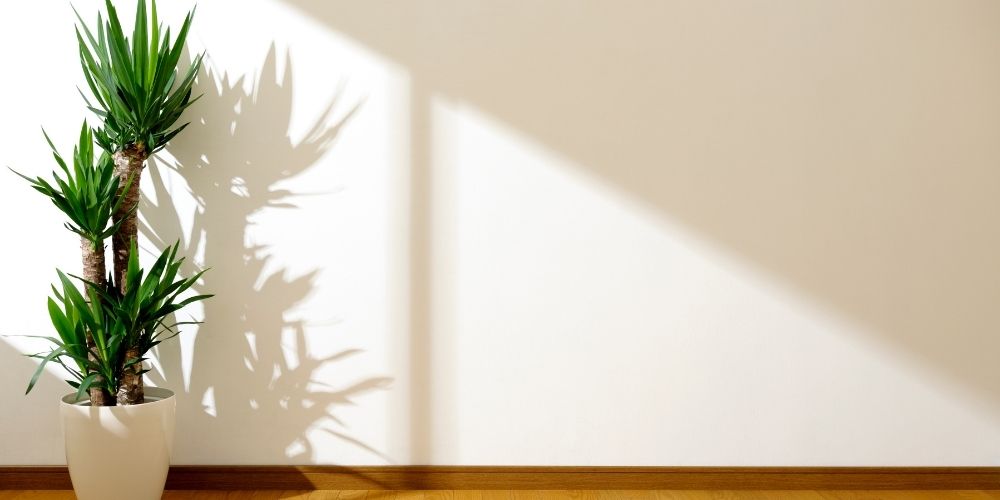Do air purifiers make the air dry?
By definition, air purifiers clean air and do not act as dehumidifiers to remove moisture from the air. But, the air might feel dry because of increased airflow or cooler air. For instance, if the air purifier is running too fast or is of the wrong size for the room, the air can feel drier.
Since air purifiers have become more popular in recent times because of the air pollutants that tend to seep into homes, it is good to understand what an air purifier does and if it makes you feel dehydrated.
Do air purifiers dehydrate you?

Air purifiers do not dehydrate the users as their primary function is not to dry air but to prevent pollutants such as dust, pollen, pet dander, etc. from entering homes. During winter, you may feel drier because of the cold air.
However, if you live in a region that is dry, you may want to combine air purifiers with humidifiers to maintain the relative humidity levels.
What does an air purifier do?
An air purifier removes harmful gases and other particles from the air that are largely due to the increasing pollution levels in the environment. The principle behind an air purifier is that it makes the air cleaner and safer to breathe. The use of an air purifier reduces allergies, respiratory difficulties, and asthmatic symptoms by removing harmful particles.
What happens if the air in your house is too dry?
The air in homes is too dry when there is a drop in humidity levels. This is especially the case in winter as the cold air can’t hold as much moisture as warm air can. This causes a number of health problems as the ideal humidity levels indoors must be maintained at anywhere between 30 – 50%.
Dry air in your house can cause breathing difficulties, nasal blockages, dry skin and itchiness, and trigger allergies.
Moreover, it causes static electricity that cannot dissipate if the air is dry. Apart from health problems, dry air can also affect the structure of your home and the furnishing.
1. Breathing difficulties
The throat and nose have moist membranes, and they work by capturing dirt, viruses, bacteria, and dust preventing them from reaching your lungs. When these membranes become dry, they cause dry throat and nose and they become unable to fulfill their function leading to illnesses.
2. Nasal blockages
With dry air, the nasal passages feel dry and become uncomfortable. Most of our breathing is done through the nose, and the dryness can cause irritation, leading to nosebleeds in some cases.
3. Dry skin
Our skin needs moisture, without which it can become too dry and cause itchiness, flaking, and tighter joints, cracked skin, and chapped lips. Skin that already has existing problems such as eczema and acne can flare up due to dryness.
4. Static electricity
A dry house encourages static electricity and causes clothes to stick together. It also causes electric shocks when you touch a metal surface.
5. Damage to the house
During winter, the air tends to draw moisture from the home environment, including the structure of your home, especially wooden structures such as hardwood floors and wooden doors and door jambs. These cause doors to stick, floors to creak, and gaps between ceilings and walls.
Eventually, such gaps allow the cold air to seep in, making you use the heater more.
You can prevent such dry air by different methods. You can either use a humidifier or follow other ways to improve the humidity levels in your home.
How do you fix a dry room without a humidifier?

You can consider green strategies that involve minimal effort to solve the dry air condition indoors. Here’s a list of things you can do to humidify your home without the investment of a humidifier.
a) Houseplants
By getting houseplants and placing them around your room, you receive the moisture that comes from transpiration. It is a process where moisture evaporates from the stems and leaves of the plants. It makes the air less dry naturally.
b) Bowls of water near windows
Placing a few bowls or vases with water near the windows also works in the same way as the houseplants, except the evaporation comes because of the sunshine falling on the water.
c) Use stovetop cooking
Stovetop cooking instead of microwave can add excess moisture to the air, such as using a teakettle that lets the steam escape, and other open cooking that helps in building moisture.
d) Shower with the door open
A hot and steamy shower can spread moisture into the room if the door is left open. Even the residual heat from a bathtub can add moisture to the rooms.
e) Bowls of water on radiators
During the winter months, the air is cold and dry, and the furnace works harder. Placing bowls of water on radiators will push humidity into the air making this one of the best ways of improving air quality.
f) Use racks to dry clothes
While it is tempting to run the clothes through a dryer, hanging them on the racks will also spread a little moisture in your homes.
What is the best humidifier and purifier, and why?
The air purifier and humidifier combo is a two-for-one deal. It is particularly useful if you have space constraints. While the air purifier will prevent contaminants, such as dust, dust mites, mold, allergens, pollen, and pet dander from entering your home, the humidifier will work towards maintaining the right humidity levels in your home.
The best humidifier would offer air filtration and evaporative humidification. The evaporative humidifier adds humidity to the air by natural evaporation through a mist that dissolves easily so as to avoid blocking the air filters. Our Top Pick for the best humidifier air purifier combo is Afloia HEPA Air Purifier with Humidifier. Click here for more information regarding this amazing product.
FAQ Section
1. Do air purifiers cause sinus problems?
Sinusitis is caused by bacterial infections, or mold, or seasonal allergies. Air purifiers are not known to cause sinus problems; instead, they prevent sinus problems by limiting the number of air pollutants that enter your home as they have a HEPA filter.
2. Can air purifiers dry out your nose?
Air purifiers do not remove moisture from the air. So, they do not play a role in dry noses. They only trap pollutants in the air through their HEPA filters. However, if the air is dry in your home due to low humidity levels, your nose can feel dry.
3. Can Air purifiers make you sick?
Air purifiers cannot make you sick. On the other hand, they improve the air quality by destroying allergens, and preventing dirt, pollen, etc., from entering your home and causing harm to the indoor environment.
4. Do air purifiers reduce humidity?
Air purifiers do not reduce humidity as their function is only to keep airborne particles away from your home.
Wrapping Up
Air purifiers are useful throughout the year and in every season. With the increasing pollution levels, the air outside tends to be full of contaminating elements that cause harm in some form or another.
There is an increasing need to filter the air you breathe and that can only be found through the HEPA filters found in air purifiers, making it enough reason to invest in a good one for the good health of your family.

About The Author
Olivia — a self-confessed air quality addict — is a home climate enthusiast, fresh air advocate, and someone with deep personal experience and knowledge about mold extermination. Her work was mentioned in countless notable humidity publications. Previously she was an editor at Mold Remediation.
